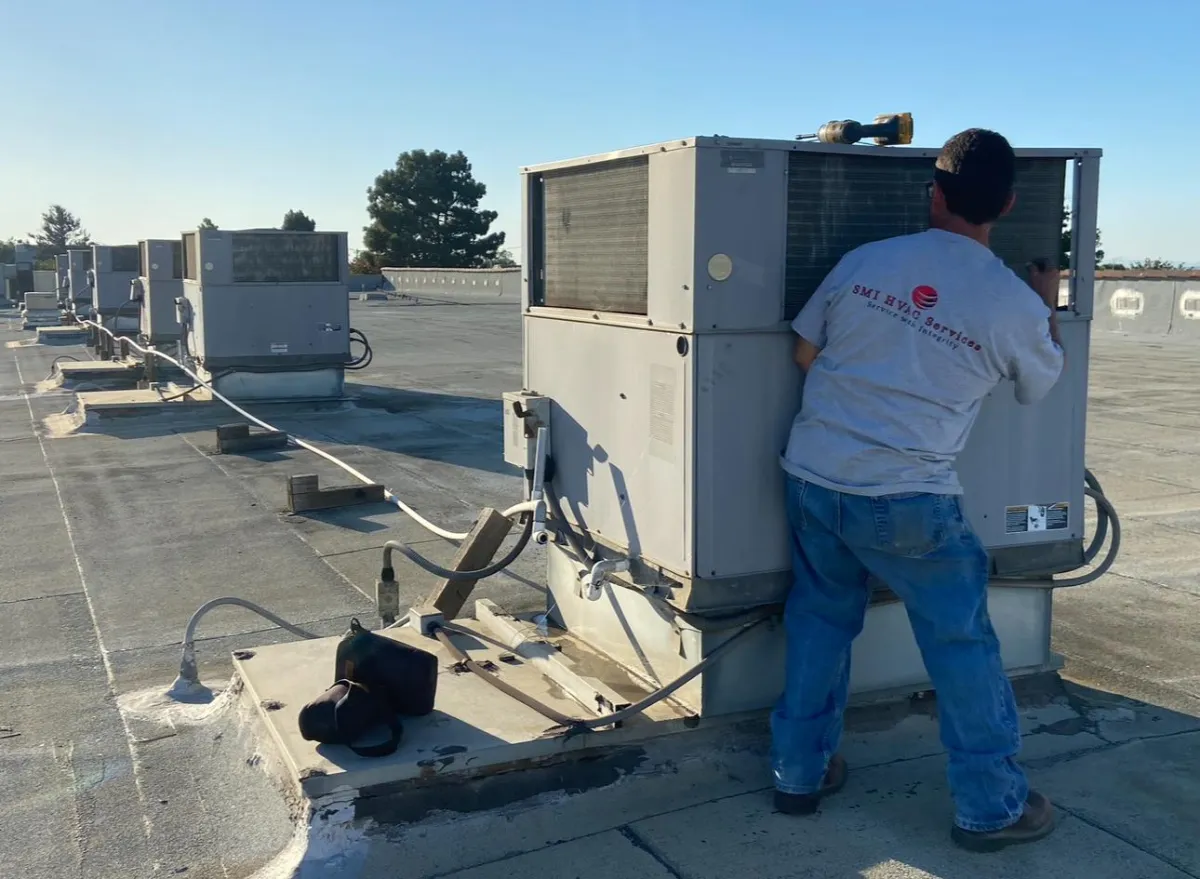
Understanding HVAC Systems: How Your Air Conditioning and Heating Work Together
When it comes to maintaining a comfortable indoor environment, understanding how your HVAC (Heating, Ventilation, and Air Conditioning) system works can be incredibly valuable. At SMI HVAC Services, we want to help you grasp the basics of your HVAC system, how its components interact, and why regular maintenance is essential for its performance. In this blog post, we'll break down how your air conditioning and heating systems work together to create the perfect indoor climate.
What is an HVAC System?
An HVAC system is a complex network of components designed to regulate indoor temperature, humidity, and air quality. It includes three main functions:
Heating: Provides warmth during cooler months.
Ventilation: Ensures proper air circulation and quality.
Air Conditioning: Cools the air during warmer months.
Understanding how these components work together will help you appreciate the importance of regular maintenance and efficient system performance.
Key Components of an HVAC System
Heating Unit: This is typically a furnace or a heat pump. Furnaces can be powered by gas, oil, or electricity, and they generate heat through combustion or electrical resistance. Heat pumps, on the other hand, work by transferring heat from the outside air to the inside of your home, providing both heating and cooling.
Cooling Unit: Most commonly, this is an air conditioner or a heat pump. Air conditioners remove heat from the indoor air and transfer it outside. They use refrigerant to absorb and release heat through a series of coils. Heat pumps, which can also act as air conditioners, reverse this process to provide cooling when needed.
Ductwork: Ducts distribute heated or cooled air throughout your home. Properly sealed and insulated ductwork ensures that the air reaches every room efficiently, minimizing energy loss and maintaining consistent temperatures.
Thermostat: The thermostat controls your HVAC system by regulating the temperature. It sends signals to the heating or cooling units to turn on or off based on the set temperature. Modern thermostats can be programmable or smart, offering more precise control over your system.
Ventilation System: This includes exhaust fans, intake vents, and air filters. Ventilation helps remove stale air and introduces fresh air into your home. Good ventilation improves indoor air quality and ensures that your HVAC system operates efficiently.
How Heating and Air Conditioning Work Together
In a well-functioning HVAC system, heating and cooling components work in harmony to provide year-round comfort:
Seasonal Transition: As the seasons change, your HVAC system seamlessly transitions between heating and cooling modes. A heat pump, for example, can both heat and cool your home by reversing its refrigerant flow. In contrast, traditional systems require separate units for heating and cooling.
Temperature Regulation: Your thermostat plays a crucial role in regulating temperature by communicating with both the heating and cooling units. When the indoor temperature deviates from your set point, the thermostat signals the appropriate unit to adjust the temperature.
Energy Efficiency: Efficient HVAC systems use advanced technology to minimize energy consumption. For instance, variable-speed motors and dual-stage heating/cooling systems provide better temperature control and energy savings. Regular maintenance, including cleaning filters and checking ductwork, helps ensure that your system operates efficiently throughout the year.
The Importance of Regular Maintenance
Regular maintenance is key to keeping your HVAC system running smoothly. Here’s why it’s essential:
Improved Efficiency: Routine checks and cleaning ensure that all components, including coils, filters, and ductwork, are in good condition. This helps your system run efficiently, reducing energy costs.
Extended Lifespan: Regular maintenance helps identify and address potential issues before they become major problems. This proactive approach can extend the life of your HVAC system and delay the need for costly replacements.
Enhanced Comfort: A well-maintained system provides consistent heating and cooling, ensuring that your home remains comfortable regardless of the weather outside.
Better Air Quality: Regular cleaning and filter replacement help maintain good indoor air quality, reducing allergens and pollutants in your home.
Contact Us for Expert HVAC Services
Understanding how your HVAC system works and recognizing the importance of regular maintenance can lead to a more comfortable and energy-efficient home. At SMI HVAC Services, we’re dedicated to ensuring your HVAC system operates at its best year-round. Whether you need a routine maintenance check, a repair, or an upgrade, our skilled technicians are here to help.
Schedule your HVAC service today and experience the difference of a well-maintained system. Contact us to learn more about our services or to book an appointment.